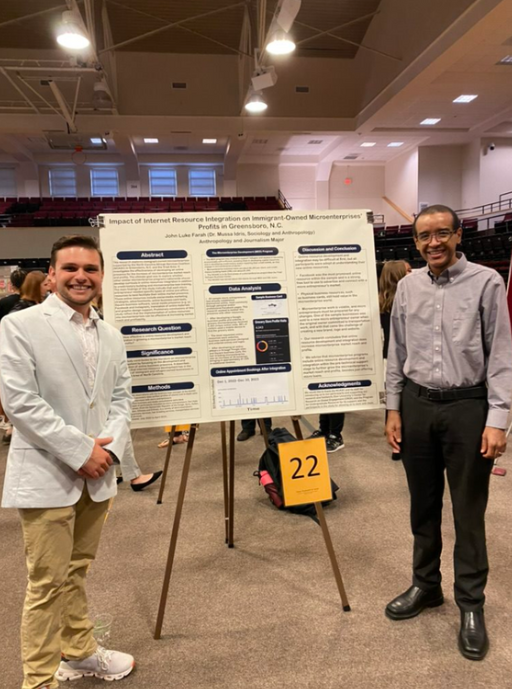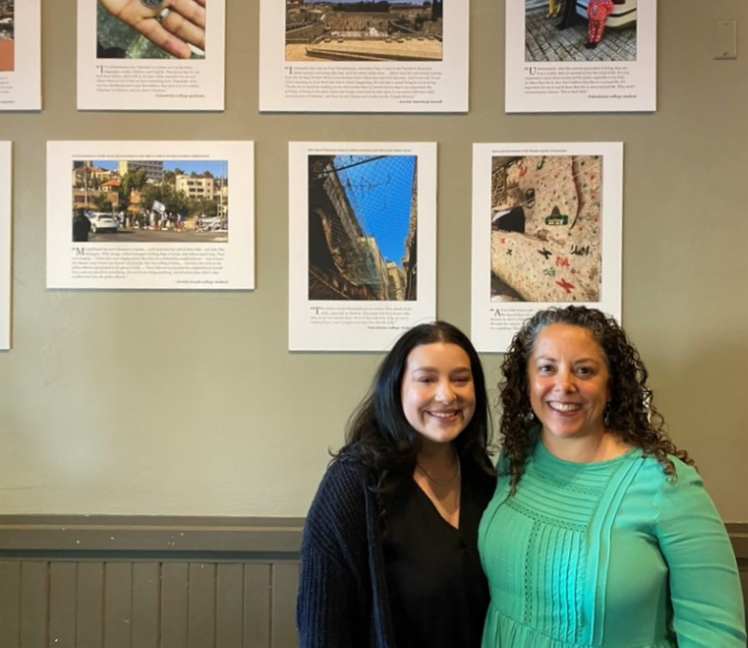- Home
- Academics
- Center for Research on Global Engagement
- 2022-2023 Awardees
2022-2023 Awardees
 John Luke Farah ‘24 | Impact of Internet Resources on Immigrant Owned Micro Enterprises’ Profits in Greensboro, N.C.
John Luke Farah ‘24 | Impact of Internet Resources on Immigrant Owned Micro Enterprises’ Profits in Greensboro, N.C.
Majors: Anthropology and Journalism
Mentor: Dr. Mussa Idris
John Luke studied the integration of African refugees and immigrants into the Triad area of North Carolina, with specific attention to the use of cultural knowledge and social networking as tools for building microenterprises. The purpose of his research was to determine the necessity of enhancing digital literacy within newly resettled refugees and immigrant entrepreneurs in the NCASC program. John Luke and Dr. Idris partnered with the North Carolina African Services Coalition, a non-profit refugee resettlement organization, to explore the possibilities of developing classes on internet resources such as advertising and social media to offer to immigrant business owners.
Megan Spina ‘24 | An Overview of Un/Ethical Practices in Edinburgh Museums
Major: Art
Mentor: Dr. Evan Gatti
Megan’s research examined the history of art and material culture as it was exhibited in museums in Edinburgh, Scotland at the time of her visit. This exploration included observations of how the colonial past of Scotland shaped the collections held by the National Museums of Scotland. She inventoried the artifacts held by each National Museum and documented the way in which objects were exhibited, including requests for or acts of repatriation. The goal of her research was to define what might be considered best practices employed by the different museums and to analyze ways in which the museums worked to develop informed publics. Her research benefits the understanding of how colonial Scottish works impact contemporary Scottish identity and culture.
Maddy Starr ‘23 | Material Memories: Narratives of the Israeli/ Palestinian Conflict
Majors: International & Global Studies, Religious Studies
Mentor: Dr. Amy Allocco

Maddy’s research project centered on material religion and the multifaith interactions between Israelis and Palestinians. How do ordinary Israelis and Palestinians narrativize their experiences of the conflict, and how do everyday objects embody these narratives? How do the individual narratives of Israelis and Palestinians fit into larger collective narratives and experiences of the conflict? How do the collective narratives and memories of the conflict shape Israelis’ and Palestinians’ contemporary behaviors toward and perspectives about each other? Maddy traveled to Jerusalem to conduct interviews for her project, asking participants to present material representations of memories and share the narratives surrounding them in order to better understand conflict and intercultural engagement.